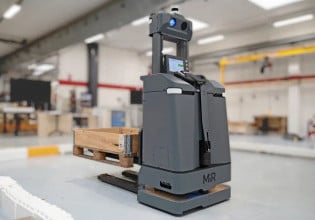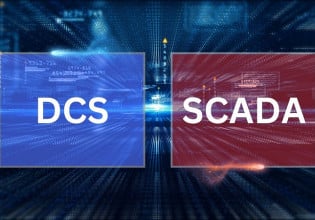J
Jiri Baum
> > Curt Wuollet:
> > > I mean it's probably too ambitious for this first pass. Your
> > > explanation makes sense.
Jiri Baum:
> > Except I was describing stuff that's - for the most part - already
> > implemented (and in the CVS). The only things that are missing for pass
> > 1 are the string->address translation and points wider than 1 bit.
Curt Wuollet:
> Two things have to happen. Your code covers in one fell swoop many of the
> more complex bits of UNIX programming, I know why. Shmem is the fastest
> IPC available and the most flexible. It abstracts the process of updating
> the map and hides the complexity of multiple access and means the using
> process can make a simple function call and not deal with the details.
> That is good design.
Thank you.
> I was going to write a couple pages of bonehead C (tm.) for an example
> of how we'd interface to the map. That is good project management at
> this stage.
So far the only sample code is the few lines in doc/smm/tutorial.txt
I haven't had a chance to look at your map-displayer code yet, but I assume that will be the very next thing to be `sample code', along with some sort of lame keyboard-input toy.
> We have to stop and explain your MM to the extent that we don't lose
> people again and then you'll have to work with me on the next step which
> is to sketch out a reasonably simple output process that interfaces to
> your MM.
I'm not sure what you mean by `output process' here.
> > The rest of the stuff - global map, private maps, semaphores, access
> > functions, plc_update() - is implemented. Granted, it may need some
> > debugging
> and a lot more explaining. I'll try to have intelligent questions for
> Monday.
I'll be looking forward to them (I might not answer them till Tuesday, though - Mondays are busy for me).
> One other note, Driver is an extremely inprecise term in software, I
> will try to use an appropriate qualifier like, kernel driver, char
> driver, etc. I have been using IO process to describe the stuff you and
> Dan were back and forth about.
`IO process' is probably a good expression.
Jiri
--
Jiri Baum <[email protected]>
Windows is not popular. Windows is *widespread*. Linux is popular.
_______________________________________________
LinuxPLC mailing list
[email protected]
http://linuxplc.org/mailman/listinfo/linuxplc
> > > I mean it's probably too ambitious for this first pass. Your
> > > explanation makes sense.
Jiri Baum:
> > Except I was describing stuff that's - for the most part - already
> > implemented (and in the CVS). The only things that are missing for pass
> > 1 are the string->address translation and points wider than 1 bit.
Curt Wuollet:
> Two things have to happen. Your code covers in one fell swoop many of the
> more complex bits of UNIX programming, I know why. Shmem is the fastest
> IPC available and the most flexible. It abstracts the process of updating
> the map and hides the complexity of multiple access and means the using
> process can make a simple function call and not deal with the details.
> That is good design.
Thank you.
> I was going to write a couple pages of bonehead C (tm.) for an example
> of how we'd interface to the map. That is good project management at
> this stage.
So far the only sample code is the few lines in doc/smm/tutorial.txt
I haven't had a chance to look at your map-displayer code yet, but I assume that will be the very next thing to be `sample code', along with some sort of lame keyboard-input toy.
> We have to stop and explain your MM to the extent that we don't lose
> people again and then you'll have to work with me on the next step which
> is to sketch out a reasonably simple output process that interfaces to
> your MM.
I'm not sure what you mean by `output process' here.
> > The rest of the stuff - global map, private maps, semaphores, access
> > functions, plc_update() - is implemented. Granted, it may need some
> > debugging
> and a lot more explaining. I'll try to have intelligent questions for
> Monday.
I'll be looking forward to them (I might not answer them till Tuesday, though - Mondays are busy for me).
> One other note, Driver is an extremely inprecise term in software, I
> will try to use an appropriate qualifier like, kernel driver, char
> driver, etc. I have been using IO process to describe the stuff you and
> Dan were back and forth about.
`IO process' is probably a good expression.
Jiri
--
Jiri Baum <[email protected]>
Windows is not popular. Windows is *widespread*. Linux is popular.
_______________________________________________
LinuxPLC mailing list
[email protected]
http://linuxplc.org/mailman/listinfo/linuxplc






